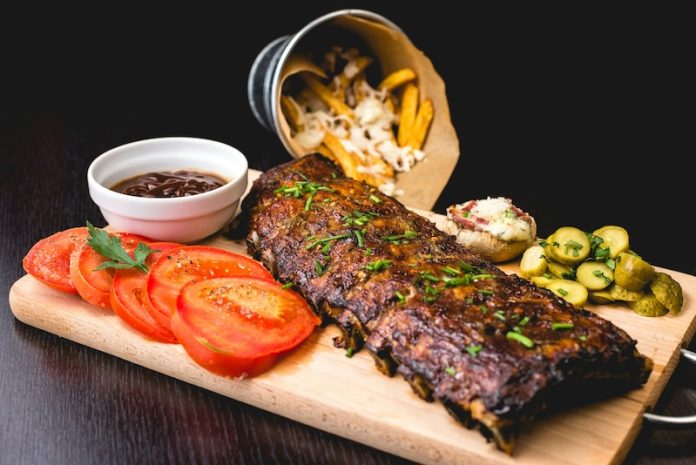
In a big advance in understanding the link between diet and cancer risk, researchers have found two genetic markers that might clarify why consuming red and processed meats is linked to an increased risk of colorectal cancer for some individuals.
This study, one of the largest to examine the gene-environment interactions involving red meat consumption and colorectal cancer risk, was led by the USC Norris Comprehensive Cancer Center and supported by the National Institutes of Health.
By analyzing data from nearly 70,000 individuals, the study uncovered that those who consumed higher amounts of red or processed meat had a 30% to 40% increased risk of developing colorectal cancer.
More importantly, through a detailed genome-wide analysis, the researchers identified two genes, HAS2 and SMAD7, that modify the risk of cancer based on levels of meat consumption.
This discovery could provide a deeper understanding of the biological mechanisms linking red meat consumption to cancer risk and pave the way for personalized dietary recommendations and prevention strategies.
The HAS2 gene, associated with protein modification within cells, and the SMAD7 gene, involved in iron metabolism regulation, were both found to influence cancer risk differently depending on the genetic variants an individual possesses.
This suggests that the impact of red and processed meat on colorectal cancer risk may vary significantly among different people, depending on their genetic makeup.
The findings, published in Cancer Epidemiology, Biomarkers & Prevention, mark a critical step forward in cancer research, offering potential explanations for how colorectal cancer develops and highlighting the importance of considering genetic factors in dietary guidelines.
While these results are promising, the researchers emphasize the need for further experimental studies to confirm these associations and better understand the underlying mechanisms.
This study not only sheds light on the complex interactions between diet, genetics, and cancer risk but also underscores the potential for future research to identify individuals who might be at higher risk for cancer based on their genetic profile.
This could lead to more targeted and effective prevention strategies, ultimately reducing the incidence of colorectal cancer.
If you care about cancer, please read studies that low-carb diet could increase overall cancer risk, and new way to increase the longevity of cancer survivors.
For more information about cancer, please see recent studies about how to fight cancer with these anti-cancer superfoods, and results showing daily vitamin D3 supplementation may reduce cancer death risk.
The research findings can be found in Cancer Epidemiology, Biomarkers & Prevention.
Copyright © 2024 Knowridge Science Report. All rights reserved.



